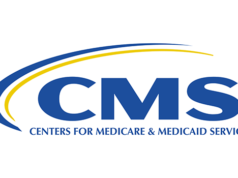
Data presented at EuroPCR today indicates that renal denervation with the Symplicity system (Medtronic) is associated with a reduction in subclinical atrial fibrillation in high-risk patients with hypertension over a median follow-up of two years.
In the study, 80 patients were randomised to undergo renal denervation or a sham procedure. Over two years, subclinical atrial fibrillation developed at a lower rate in the group of patients who received renal denervation than in the group who received the sham procedure (19% vs. 47%). Implantable diagnostic technology (Medronic) was used to monitor the occurrence of atrial fibrillation.
Marshall J Heradien (Stellenbosch University, Cape Town, South Africa), the principal investigator, says: “In this high-risk cohort of patients with hypertensive heart disease, who are at risk for atrial fibrillation and cardiovascular death, this study suggests there may be an important benefit provided by renal denervation. Consistent with previous studies, these data show that the renal denervation procedure offers a lasting, positive effect that may translate into improved clinical outcomes.”
He added that the “observed benefits are likely mediated by reducing sympathetic tonic”. However while the criteria for superior blood pressure lowering were met in the study, there were no significant differences between the sham procedure group and the renal denervation group at the six-month follow-up point.
New three-year data from the Global SYMPLICITY Registry were also presented at EuroPCR. The Global SYMPLICITY Registry is the largest registry to document the long-term safety and effectiveness of Medtronic renal denervation systems in a real-world setting in patients with uncontrolled hypertension. To date, the registry has enrolled more than 2,600 patients treated with renal denervation and includes three-year follow-up for more than 2,300 patients.
The latest outcomes indicate that significant and clinically meaningful reductions in both office and ambulatory blood pressure that were sustained out to three years’ post-procedure (16.5mmHg office systolic blood pressure and 8.9mmHg 24-hour systolic ambulatory blood pressure monitoring). The findings were consistent and sustained across various high-risk patient subgroups, including those with diabetes, isolated systolic hypertension, chronic kidney disease, resistant hypertension and those aged 65 years and older.
Dave Moeller, vice president and general manager of the Coronary and Renal Denervation business, which is part of the Cardiac and Vascular Group at Medtronic, comments: “As demonstrated by these studies presented at EuroPCR, new data continue to demonstrate that renal denervation is a safe and useful complement to manage uncontrolled hypertension, with patients experiencing meaningful blood pressure reductions out to several years and in the setting of daily clinical practice. Results from these studies will add to the robust growing body of evidence supporting renal denervation and may be important for consideration with patients suffering from uncontrolled hypertension.”











